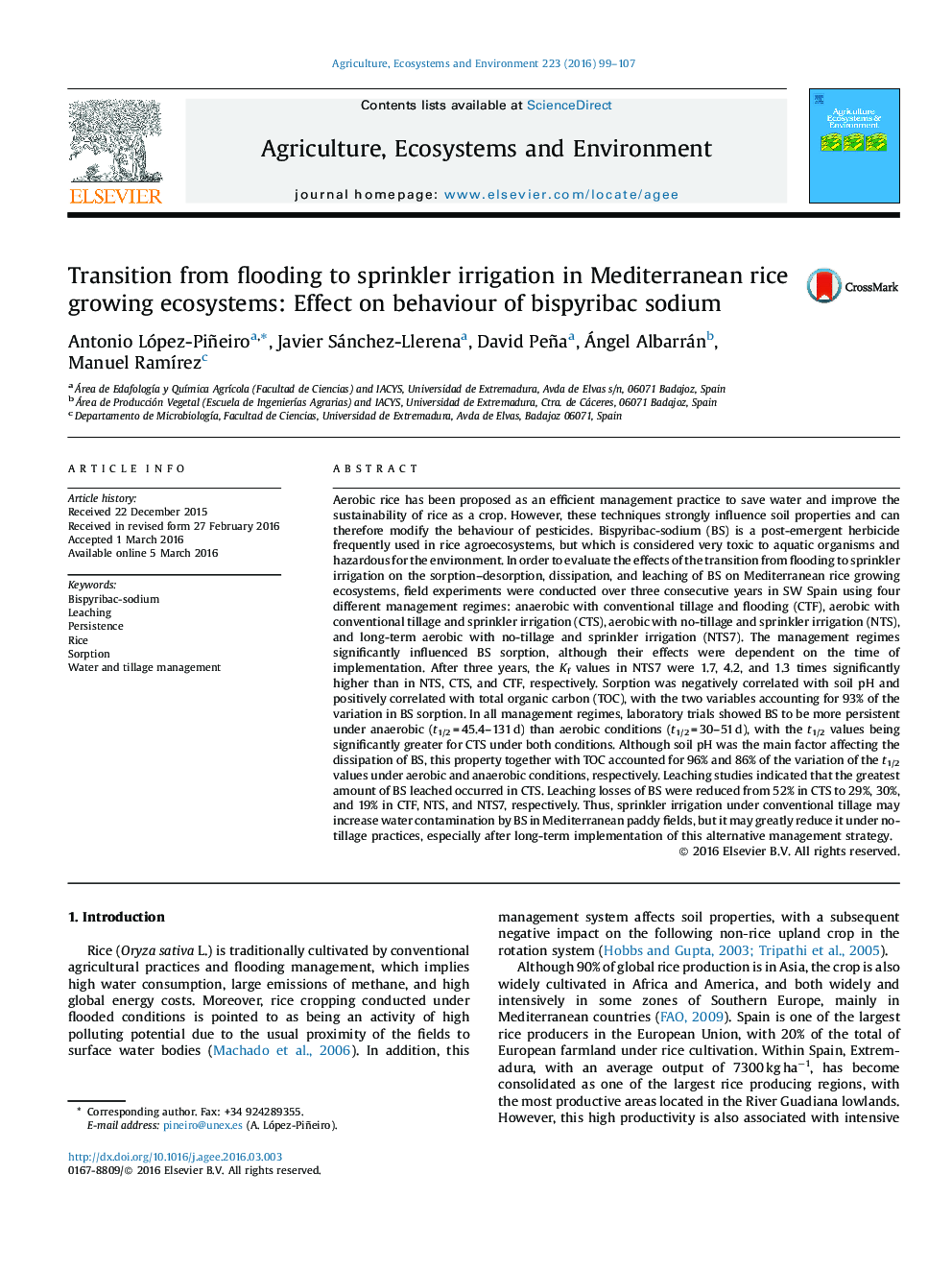| کد مقاله | کد نشریه | سال انتشار | مقاله انگلیسی | نسخه تمام متن |
|---|---|---|---|---|
| 2413488 | 1552029 | 2016 | 9 صفحه PDF | دانلود رایگان |
• Aerobic rice production modifies soil properties leading to changes in BS behaviour.
• SOC and pH were the major factors contributing to the behaviour of BS in rice agroecosystems.
• Sprinkler irrigation under tillage increased the risk of water contamination by BS.
• Sprinkler irrigation under no-tillage may reduce the risk of water contamination by BS.
Aerobic rice has been proposed as an efficient management practice to save water and improve the sustainability of rice as a crop. However, these techniques strongly influence soil properties and can therefore modify the behaviour of pesticides. Bispyribac-sodium (BS) is a post-emergent herbicide frequently used in rice agroecosystems, but which is considered very toxic to aquatic organisms and hazardous for the environment. In order to evaluate the effects of the transition from flooding to sprinkler irrigation on the sorption–desorption, dissipation, and leaching of BS on Mediterranean rice growing ecosystems, field experiments were conducted over three consecutive years in SW Spain using four different management regimes: anaerobic with conventional tillage and flooding (CTF), aerobic with conventional tillage and sprinkler irrigation (CTS), aerobic with no-tillage and sprinkler irrigation (NTS), and long-term aerobic with no-tillage and sprinkler irrigation (NTS7). The management regimes significantly influenced BS sorption, although their effects were dependent on the time of implementation. After three years, the Kf values in NTS7 were 1.7, 4.2, and 1.3 times significantly higher than in NTS, CTS, and CTF, respectively. Sorption was negatively correlated with soil pH and positively correlated with total organic carbon (TOC), with the two variables accounting for 93% of the variation in BS sorption. In all management regimes, laboratory trials showed BS to be more persistent under anaerobic (t1/2 = 45.4–131 d) than aerobic conditions (t1/2 = 30–51 d), with the t1/2 values being significantly greater for CTS under both conditions. Although soil pH was the main factor affecting the dissipation of BS, this property together with TOC accounted for 96% and 86% of the variation of the t1/2 values under aerobic and anaerobic conditions, respectively. Leaching studies indicated that the greatest amount of BS leached occurred in CTS. Leaching losses of BS were reduced from 52% in CTS to 29%, 30%, and 19% in CTF, NTS, and NTS7, respectively. Thus, sprinkler irrigation under conventional tillage may increase water contamination by BS in Mediterranean paddy fields, but it may greatly reduce it under no-tillage practices, especially after long-term implementation of this alternative management strategy.
Journal: Agriculture, Ecosystems & Environment - Volume 223, 1 May 2016, Pages 99–107
